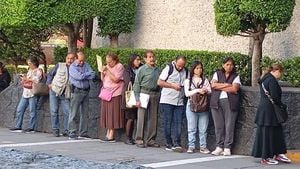On May 6, 2025, Deputy Arthur Lira (PP-AL) took center stage as he presented a preliminary analysis of the proposed Income Tax reform (PL 1087/25) during the installation of the special committee tasked with reviewing the legislation. Lira, appointed as the rapporteur, indicated he might consider revising tax rates for high-income earners, specifically those making over R$ 600,000 annually.
The proposal, which was sent to Congress by the Executive Branch in March, aims to exempt individuals earning up to R$ 5,000 per month from income tax. Furthermore, those with monthly incomes between R$ 5,000 and R$ 7,000 would benefit from reduced tax rates. To offset an estimated revenue loss of R$ 20.5 billion in 2026 due to these exemptions, the government proposes increasing taxes on individuals earning more than R$ 50,000 monthly, or R$ 600,000 annually.
From this threshold, a progressive tax rate would be implemented, peaking at 10% for those earning R$ 1.2 million or more per year. Lira explained that the choice of a 10% rate aligns with the median tax rate among OECD countries, which ranges from 5% to 15%. However, he acknowledged that the tax rates could be subject to change, stating, "In light of arguments that any change in rates could unbalance the bill, it does not mean that such rates cannot be altered or that alternative compensatory measures cannot be sought."
During the committee meeting, Deputy Rubens Pereira Júnior (PT-MA) was confirmed as the president. The initial schedule outlines that Lira's report is expected to be presented by June 27, with a vote in the committee slated for July 16.
Lira emphasized that the proposed changes would also impact the finances of states and municipalities. He referred to a study conducted by the Chamber of Deputies' Budget and Financial Supervision Consultancy, which highlights revenue losses for federal entities. The study indicates that while smaller municipalities would gain from the proposed changes, larger municipalities and states would face losses.
"The study suggests that smaller municipalities will benefit, but those with populations over 50,000 and the states will incur losses. Therefore, we need to estimate who gains, who loses, how much they lose, and how to balance this to avoid any external pressure on the will of all deputies in this House," Lira remarked.
As the discussion unfolded, Lira stressed the importance of considering how changes in income tax revenue could affect foreign investment in Brazil. He noted, "We need to work carefully to avoid any turbulence." He also pointed out that the committee has a statutory deadline of ten plenary sessions to analyze the proposal from the date of installation.
In his remarks, Lira indicated that the government anticipates collecting more revenue than necessary with the proposed changes next year, potentially allowing compensation for states and municipalities without needing a new revenue source. He estimated that the government might collect R$ 8 billion more than the amount required for compensation.
According to Lira, the economic team expects to collect approximately R$ 34 billion while estimating a tax waiver of R$ 25 billion in 2026. The proposed income tax reform includes exemptions for individuals earning up to R$ 5,000 monthly, with those earning up to R$ 7,000 receiving discounts on their income tax obligations.
To compensate for the revenue loss, an additional contribution would be imposed on high-income earners—those making R$ 50,000 monthly or more—who currently do not pay at least 10% in income tax. A study by the Chamber's Budget and Finance Consultancy concluded that the overall loss for states and municipalities would amount to R$ 11.2 billion, with São Paulo projected as the largest loser, forfeiting R$ 700 million in annual revenue.
In contrast, smaller municipalities, defined as those with populations of up to 50,000, would see gains. Lira was formally designated as the rapporteur of the income tax reform proposal during the committee's first session. He expressed his intention to present the report by June 27 and hopes to conclude discussions on the matter within the first semester.
One alternative proposal already on the table is to increase the Social Contribution on Net Profit (CSLL) tax on large banks. This idea was suggested by Ciro Nogueira (PI), president of the PP party, which Lira is a part of. Lira refrained from committing to this proposal but acknowledged that if adopted, the vote would need to be completed before the end of the year to take effect in January 2026.
Lira also indicated that he would adjust the text to prevent loopholes for regulatory measures, as pointed out by the Ministry of Finance, particularly regarding the calculation of income tax on dividends. He has requested additional information from the Federal Revenue Service to begin drafting his report, including clarifications on calculations made by the tax authority.
"We will receive the information, address any doubts, and assess the adequacy of compensations. What we cannot compromise on is ensuring a progressive tax structure, providing exemptions up to R$ 5,000, discussing rates up to R$ 7,000, and determining how we will structure taxation for those earning R$ 50,000 and above," Lira stated.
He added a desire to avoid creating barriers to the taxation of dividends, which will be included in the taxable income of high-income earners—those receiving more than R$ 50,000 monthly who currently do not pay the minimum effective tax rate of 10%. The taxation will be progressive, reaching 10% for those with monthly incomes exceeding R$ 100,000.
In his presentation, Lira expressed concerns about the "asymmetry" in the dividend tax rate, which is fixed at 10% across the board, regardless of whether a taxpayer is considered high-income or if their earnings fluctuate. He noted, "If that project did not progress in the Senate due to certain hurdles, we need to ensure that we avoid similar obstacles this time around, as everything is highly technical, and we are learning as we go."




